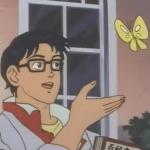"Would you like to lecture me about the THEORY of evolution?"
I wouldn't like to lecture you about anything.
I don't mind pointing out that a theory and a scientific theory are two different things though.
"A "theory" is like a hypothesis; it's something you think is true, often based on what you've observed or derived from other facts you hold true. A theory about something scientific is still just a theory.
A "scientific theory" is used to describe what was once just a theory but has since been repeatedly tested and verified with the scientific method (a specific style of testing to ensure tests can be repeatedly verified by multiple parties) and not shown to be falsified.
"Scientific theories" also require the theory they describe to fulfill a few extra criteria: the theory must be testable and they must provide falsifiable predictions ("the earth would be made of cheese in another universe" can be a theory but not a scientific theory because its cheese-laden prediction can't be proved false).
In fact, scientific theories are usually more important to understanding the world than "scientific laws" (another part of the scientific theory, but definitely sounds more important, right?). Scientific laws aim to describe what we can actually observe and provide predictions on those observations; scientific theories try to explain *why* those laws happen.
The "law of gravity" says "when we drop stuff, it falls". That's what we see and what happens; it offers a falsifiable prediction for a natural phenomenon that hasn't been disproved (or else it wouldn't be a law). If you drop something, you can rely on a prediction given by the law of gravity: it's going to fall (with some caveats for other forces also applied, like buoyancy).
The "theory of gravity", on the other hand, attempts to explain why the law of gravity is what we see, and is based on those same tenets: it provides mathematical models that explain the phenomenon of gravity and provides falsifiable predictions based on those models. People are always trying to find the most detailed model they can to explain the laws. If an accepted theory is falsified by experiment it's a pretty big deal (because it doesn't happen often, but it DOES happen over time as we better understand our world), but we really just move on to the next-most-accurate model we have explaining that law that is still true." -Andrew Brown
You're welcome.

 Caption this Meme
Caption this Meme